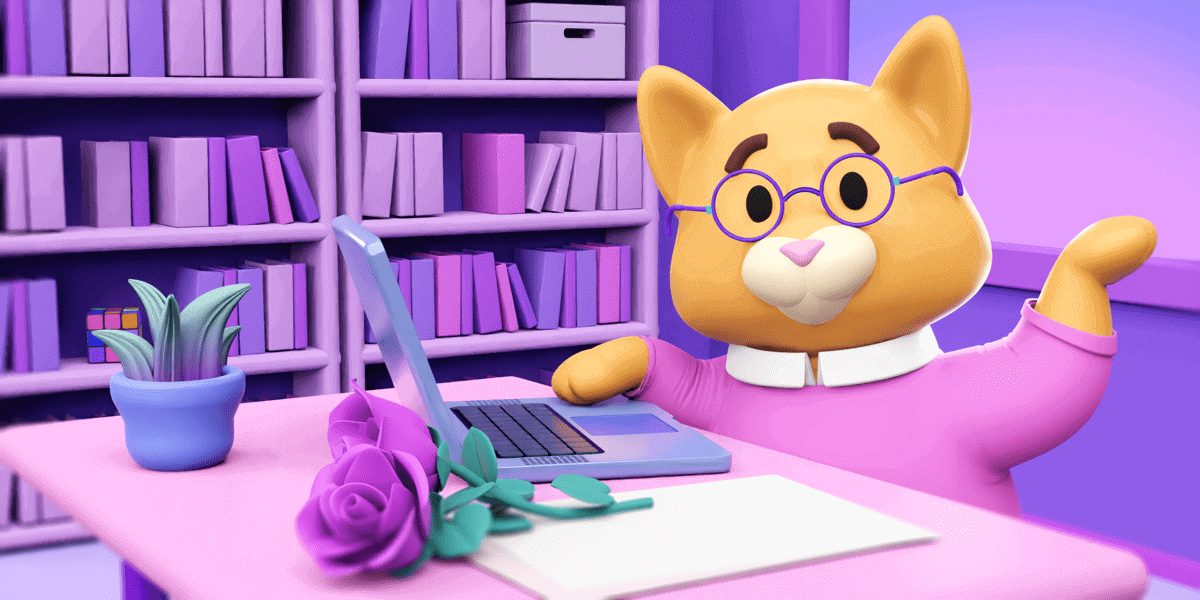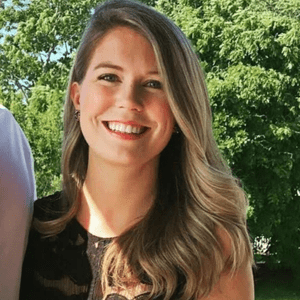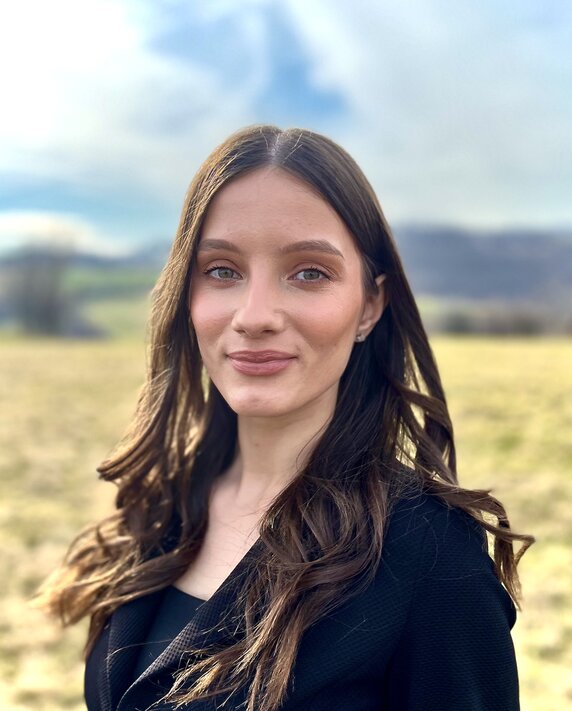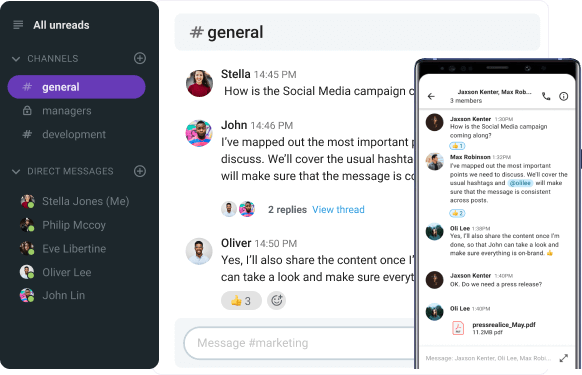You can breathe a sigh of relief! You’re finally done with your job interview.
But, there’s just one more thing you should do before relaxing and waiting for feedback. You should write a thank you email to your interviewer.
If you want to leave a great impression and improve your chances of getting the job, writing a professional thank you email should be on your to-do list.
In this blog post, we’ll go over:
- Why you should send a thank you email,
- How to properly write a thank you email, and
- How soon after an interview you should send a thank you email.
We’ve also prepared templates you can download and use for your next thank you email.
Let’s start!

Table of Contents
Why send a professional thank you email after an interview?
Some believe that thank you letters (or, in this case, emails) are a thing of the past. The truth is that not many people send these kinds of emails. That is exactly why you should.
We’ll go over some of the most important reasons why you should always send thank you emails after a job interview.
Reason #1: A thank you email shows your professionalism
Firstly, a thank you email shows your level of professionalism.
It is simply a polite and professional thing to do.
If you were in the position of an interviewer, with candidates coming in and out of your office the whole day, a genuine “Thank you” would surely lift your spirits.
By thanking the interviewer, you show that you appreciate their hard work and the time they put in to talk to you about a job.
Reason #2: A thank you email helps you stand out from the crowd
Another reason why you should send a thank you email is that it will catch the eye of the interviewer.
In this fast-paced world, with millions of jobseekers, you want to stand out from the crowd. Writing a thank you email is so rare in the professional world nowadays that it will most definitely get you noticed.
Take advantage of this and always send a professional thank you email.
Reason #3: By sending a thank you email, you leave a positive impression
Furthermore, writing a professional thank you email will leave a positive impression.
You should take every opportunity to leave a positive impression on the recruiter, and writing a professional thank you email is one of them.
You will appear professional, polite, and thoughtful with a nicely written thank you email.
Reason #4: A thank you email shows your enthusiasm for the job
A nicely crafted thank you email also shows your enthusiasm for the job.
You can express your interest in the position and your excitement about the prospects of the new job in a thank you email.
This lets the recruiter know that you are passionate and ready to work.
Reason #5: A thank you email allows you to add more information
A thank you email is also an opportunity to add on information about yourself.
If you failed to mention an important skill or if the interviewer asked you to provide a copy of something, you can add it to your thank you email.
How do you say thank you professionally in an email?
What are the important steps and elements that should be included when writing a professional thank you email?
Let’s go over some things you should keep in mind when writing your email.
Step #1: Write an informative subject line
The first step to a professional thank you email is to write a good subject line.
Your subject line should always be short and straightforward. The interviewer should be able to recognize the point of the email right away.
To make the subject line more descriptive, you can add:
- Your name,
- The position you interviewed for, or
- The date of the interview.
This ensures that the interviewer knows what the email is about. Introducing yourself in the subject line will refresh their memory of the interview, and they will be more likely to open and read your email.
Adding the position you interviewed for is also a good option.
Providing details such as these in your subject line is better than a generic “Thank you”. It provides context and will make it easier for the interviewer to know who you are and why you’re sending them an email.
Our contributor, Matthew A. Gilbert, Lecturer of Marketing and TedX speaker, agrees that this is an important element of a thank you email, and adds that you should include all essential information, even if it seems self-evident:

“Don’t assume the recruiter will immediately know who you are. Depending on the job, recruiters might receive dozens — or hundreds — of emails about a position. Be sure to include information that might seem self-evident: your name, the title of the position, the date and time you were there, and any other identifier.”
So, a descriptive but brief subject line is best when writing a thank you email.
Step #2: Greet the interviewer
The second step is to start your email with a greeting.
Make sure to use polite language and always refer to people by the name they provided when you met.
If the interviewer was more informal and introduced themselves by their first name, it may be okay to continue using their first name in your email correspondence.
If the interviewer used their last name, you should too.
Here are a couple of options for a greeting:
“Hello, [interviewer’s first name]”,
“Dear Mr./Ms. [interviewer’s last name]”,
“Dear [interviewer’s first name]”.
When in doubt, always choose the more formal way of communicating, lest you offend the reader of your email before getting a chance to thank them.
Step #3: Show appreciation
The next, and most important, step is to show gratitude. That is, after all, the point of a thank you email.
Make sure to thank the interviewer for their time and point out how appreciative you are of the opportunity. You can also show appreciation for everything you learned during the interview.
If the interviewer made you feel especially comfortable and relaxed, you can mention it as well. Praising their professional skills will make them feel appreciated.
Show appreciation in the first sentence of your email. Here are a few examples of how you can show gratitude:
“Thank you for taking the time to speak with me.”
“Thank you for the pleasant conversation about the job of [position] yesterday.”
“I appreciate you taking the time to discuss the role of [position] with me.”
If you decided against including the job title in the subject line of your email, make sure to do it in this part of the email. This way, you avoid any confusion and misunderstanding.
However, be careful to not step over the line.
You should express your appreciation, but don’t go overboard. You risk sounding too servile and unprofessional.
Matthew A. Gilbert also advises against going overboard:

“A ‘thank you’ email should be gracious without being gratuitous. While it’s essential to express your appreciation, don’t go overboard with enthusiasm — keep things polite and professional.”
Therefore, make sure you specifically thank your interviewer, but be careful not to overstep.
Step #4: Include a specific reference
To make sure you grab the attention of the reader, include a specific reference to something you talked about in the interview.
For example, seemingly small details such as an upcoming product launch, or even something personal like a vacation they mentioned, will let the interviewer know that this message was written specifically for them.
Our contributor, Chelsea Ashbrook, a Senior Manager at Genentech, couldn’t agree more. She believes that personalizing your email makes a world of difference:

“The most crucial element of a ‘thank you’ email is personalization. Make sure you address the interviewer by name and reference specific moments from the interview. You could talk about how much you enjoyed discussing a particular project or how the company’s values align with your own. It shows that you were engaged and attentive during the conversation, and it makes a world of difference.”
Gilbert shares the same opinion and emphasizes the importance of remembering the people you talked to:

“Take note of everyone you meet and include them directly in your email distribution or indirectly by referencing them by name. Pay attention to specifics shared about the position, company, or industry, and include your insights about them. Even better if you can identify the person from whom you learned the information. Doing this demonstrates that you were paying attention and have put effort into understanding the opportunity.”
Therefore, the best way to make your thank you email stand out is to personalize it.
Step #5: Recap your skills
Another way to subtly influence the interviewer is to recap your most valuable skills and experience in your thank you email.
This doesn’t mean you should list out all of your qualifications or brag about your accomplishments, but a short recap can be beneficial.
Chelsea Ashbrook adds that this shows your enthusiasm for the job:

“Another essential aspect is to highlight your qualifications and passion for the position. Briefly reiterate your relevant skills and experience, and express your excitement about the opportunity. This not only reminds the employer of your strengths but also reaffirms your enthusiasm for the role.”
A short recap of your strongest assets is all you need to refresh the interviewer’s memory and showcase your professional abilities.
Step #6: State your interest in the position
A thank you email is a great way to reaffirm your interest in the position.
You can express this by simply stating your excitement or enthusiasm for the position. Here’s how you can do that:
“I’m excited for the chance to join the team and gain new skills and experience.”
A thank you email is not a required step in the interview process, so the fact that you’re sending it sends a strong signal that you are interested in the position. However, highlighting that fact in your email will let the interviewer know that you are very passionate about the position.
Going that extra mile will make sure the interviewer knows you’re passionate and ready for the job.
Step #7: Include additional information
Another essential part of your thank you email is any additional information you may need to deliver.
For example, if you talked about your college education and the interviewer asked for a copy of your degree, here’s where you add it.
Or, if the interviewer asked for recommendations from previous employers, you can attach that to your thank you email.
However, keep in mind that you should only add information that was asked of you.
A thank you email is not the place to go overboard with additional information that wasn’t needed. If you start adding extra information, it will make it seem like you were completely unprepared for the interview and you will look unprofessional.
Therefore, do add any relevant and necessary information, but make sure to keep it at that.
💡 Pumble Pro Tip
Including additional information in your email can be done with the use of PS. To learn more about how to use PS in professional communication, read our blog post:
Step #8: Encourage a follow-up
Toward the end of your email, you should encourage a follow-up.
It’s a simple but necessary element to include, with phrases such as:
“I look forward to hearing from you.”
“Don’t hesitate to contact me if you have any questions.”
“Feel free to contact me at any time.”
By including this simple Call to Action, you demonstrate that you’re willing to discuss any additional questions or concerns. The interviewer will know that if they need anything, you will be happy to provide it.
💡 Pumble Pro Tip
Writing a follow-up email is standard procedure in the professional world. If you’ve ever struggled when writing one, follow the link below to learn more about how and when you should send follow-up emails:
Step #9: Include contact information
You’ve come to the end of your thank you email. After urging the interviewer to contact you for any additional information, you should provide them with ways of contacting you.
Include your contact information after you sign off. In different industries and different parts of the world, there are different expectations for professional communication.
In general, it’s acceptable to provide your phone number and email address.
Although the interviewer probably already has your information on file, listing it at the end of your email will make the process of contacting you easier.
Sample thank you email after an interview
Now that you’re aware of what a thank you email should consist of, let’s look at an example of such an email.
This will be an example of a thank you email after a job interview for the position of Social Media Manager.
Subject line: Thank you for the interview — Social Media Manager
“Hello, Ms. Jones,
Thank you for taking the time to interview me yesterday for the Social Media Manager position. It was a pleasure getting to know you and your team. Thank you for letting me in on the details and responsibilities of this position. I was especially excited to learn about the growing numbers on your social media platforms.
I’m confident that my skills and experience in this industry will prove to be a great fit for the role. I’m excited for the opportunity to work with the team.
Attached below is the recommendation letter from my previous employer, as discussed during the interview.
If you have any questions, feel free to contact me at any time.
Thank you,
Katie Stark
katie.stark@ema.il111-222-333”
Highlighted are some of the important elements we talked about earlier, such as:
- Descriptive subject line,
- Expression of gratitude,
- Specific reference to something you talked about,
- Additional information, and
- Invite any additional questions.
As you can see, the email is not too long or detailed, but it does touch on the most important points. It’s concise, professional, and effective.
Thank you email after interview templates
Take a look at our templates below to get an idea of what a thank you email should look like.
You can use our templates as inspiration when writing your thank you email. You can also download our templates for free and just fill out the relevant information before sending your email.
Template #1: Short thank you email
Here’s a template for a short and general thank you email:
Subject line: Thank you for the interview — [position]
“Hi, [interviewer’s name],
Thank you for taking the time to talk to me yesterday. I enjoyed learning more about the [position] role.
It sounds like a great opportunity to showcase my knowledge and also learn from your already experienced team.
I look forward to hearing more from you. Feel free to contact me if you have any additional questions.
Thank you,
[your full name]
[your contact information]”
Download the Short Thank You Email Template
Template #2: Thank you email with additional information
If the interviewer asked you to send some additional information, you can do it in your thank you email. Here’s a template for a thank you email with additional information:
Subject line: Thank you for the interview – [your name]
“Hello, [interviewer’s name],
I’m reaching out to say thank you for the interview yesterday. It was a great experience to get to know you and your team.
As promised, attached below is a copy of my [diploma, recommendation, degree, etc.].
This position sounds exciting, and I would love to have an opportunity to learn more about it. I’m confident that my skills would be a great fit for this position.
Please feel free to contact me with any additional questions or concerns.
Thank you,
[your name]
[contact information]”
Download the Thank You Email With Additional Information Template
Template #3: Informal thank you email
If the interviewer had an informal style of communication and urged you to also be informal in your correspondence, you can write a more informal thank you email. Here’s how that can go:
Subject line: Thank you for the interview — [position]
“Hi, [interviewer’s name],
It was great to meet you and chat about the [position] role. Thank you for making the time to meet with me.
The job sounds exciting and I think my skill set and experience would fit this role. I also loved the atmosphere in the office, and I think I could fit right in.
Please contact me if you have any questions. Thanks again for the opportunity.
[your name]
[contact information]”
Download the Informal Thank You Email Template
Template #4: Formal thank you email
For a more formal approach, take a look at this formal thank you email template:
Subject line: Thank you for the interview — [your name]
“Dear [Mr./Ms. Interviewer’s last name],
Thank you for taking the time to discuss the [position] role with me yesterday.
I enjoyed meeting you and learning more about your company and the team. I appreciate your insight into the current state of [industry] and I would love an opportunity to learn more from you.
The job description and duties resonated with me, and I feel confident that my skills and education would make me a valuable addition to the team.
Please contact me for any additional questions.
Thank you,
[your name]
[contact information]”
Download the Formal Thank You Email Template
Template #5: Thank you email after a phone interview
If you had an interview over the phone, you should also send a thank you email. Here’s a template for a thank you email after a phone interview:
Subject line: Thank you from [your name]
“Hello, [interviewer’s’ name],
Thank you for the pleasant phone conversation we had yesterday. I enjoyed getting to know more about the [position].
I’m excited to learn more about this role and would love a chance to discuss this opportunity further. I’m open to sharing my past work, skills, and experience and answering any questions you have.
I look forward to hearing from you, and hopefully meeting you in person.
Thank you,
[your name]
[contact information]”
Download the Thank You After a Phone Interview Template
Template #6: Thank you email after a virtual interview
Here’s how you can say thank you after a virtual interview:
Subject line: Thank you for the interview — [position]
“Dear [Mr./Ms. Interviewer’s name]
Thank you for taking the time to talk to me about the [position] role yesterday. It was highly informative, and I was excited to learn more about the position.
I’m confident that you will find my skills and experience a good fit for this job. If you have any additional questions, I’m at your disposal. I’m open to another virtual meeting or an in-person meeting if needed.
I look forward to hearing from you and taking this process to the next step.
Yours sincerely,
[your name]
[contact information]”
Download the Thank You Email After a Virtual Interview Template
Template #7: Thank you email after an internship interview
An internship interview should also be followed by a thank you email. Here’s a template for a thank you email after an internship interview:
Subject line: Thank you for the internship interview
“Dear [Mr./Ms. Interviewer’s name],
Thank you for the opportunity to discuss this internship. It was great learning more about your company and your vision for the future.
I am excited to take the next step in the application process and learn more.
Please feel free to contact me if you have any questions or if you need any additional information from me.
I look forward to hearing from you.
Thank you,
[your name]
[contact information]”
Download the Thank You Email After an Internship Interview Template
Template #8: Thank you email after a first-round interview
Get noticed among all the other job applicants in the first round of interviews by sending a thank you email. Take a look at our template for a thank you email after a first-round interview:
Subject line: Thank you for the [position] interview
“Dear [Mr./Ms. Interviewer’s name],
It was great meeting you yesterday for the initial interview. The position sounds even more exciting and rewarding now. Hopefully, my enthusiasm for this job was evident.
As required, I am attaching my [diploma, certificate, etc.].
I understand this is the first step, and I’m excited to hear more from you.
I look forward to the next meeting.
Thank you,
[your name]
[contact information]”
Download the Thank You Email After a First-Round Interview Template
Template #9: Thank you email after a second interview
Here’s how you can show your appreciation after a second interview:
Subject line: Thank you for the interview — [your name]
“Hello, [interviewer’s name],
It was great meeting with you again. Thank you for the opportunity to discuss the [position] role in detail. I’m excited about the potential for growth and progress in your team.
I understand you are looking for a highly motivated person who can handle challenges. Hopefully, my experience and skills will prove I am the right fit.
I look forward to hearing from you soon.
Thank you again,
[your name]
[contact information]”
Download the Thank You Email After a Second Interview Template
Template #10: Thank you email after a final interview
Even though you’re now done with interviews, you mustn’t forget to send a thank you email after your final interview. Here’s a template for a thank you email after a final interview:
Subject line: Thank you for the interview — [your name]
“Hello, [interviewer’s name],
It was great to meet with you for the final interview. Thank you for the opportunity to learn more about the [position] role.
Hopefully, I have demonstrated the skills and knowledge needed for this role. I’m excited about the potential of joining your team and growing together.
I understand this is the last step in the process, and I look forward to hearing from you soon.
For any additional questions, don’t hesitate to contact me.
Thank you,
[your name]
[contact information]”
Download the Thank You Email After a Final Interview Template
How soon should I send a thank you email after an interview?
Another important question many jobseekers have is the timing of the thank you email.
Should you send it right after the interview or wait a few days?
The best practice is to send your thank you email within 24 hours of your interview. If your interview took place early in the morning, it’s acceptable to send your email later on in the day. If you had the interview later in the day, you can wait until the next day to send your email.
Just don’t send it as soon as you leave their office. It will make it seem like you just copied the message and sent it without a second thought.
So, up to 24 hours is the perfect time to send your thank you email.
This gives you enough time to craft the perfect message, without seeming too eager.
By doing so, you also give the interviewer time to reflect on the interview, and possibly start the process to the next round of interviews.
Therefore, with a perfectly timed thank you email, you will be fresh in their memory, and leave a positive impression.
💡 Pumble Pro Tip
Good timing is essential when sending important emails. To learn more about why good timing is important, and what the best time for sending emails is, click here:
Harness the power of ‘Thank you’ — Or send a stronger message with Pumble
Writing a professional thank you email is an important step in your job search. It doesn’t take a lot of time to put together, but it serves as a great display of your professional skills.
That’s especially true if, during the interview process, the company you’re interviewing for added you to their Pumble workspace via guest access.
In that case, you’ll be able to send an even stronger message to them, by sending a personally tailored reply via a DM or a public channel message.
Maintaining a good relationship with the person in charge of your interview process is vital, as it allows you to:
- Reinforce your interest in the role,
- Promote your personal brand, and
- Influence the decision to hire you.
Remember to keep the message polite, professional, and concise, and always send it on time.
Do you want to see how a state of the art communication and collaboration platform can change your professional communication?




